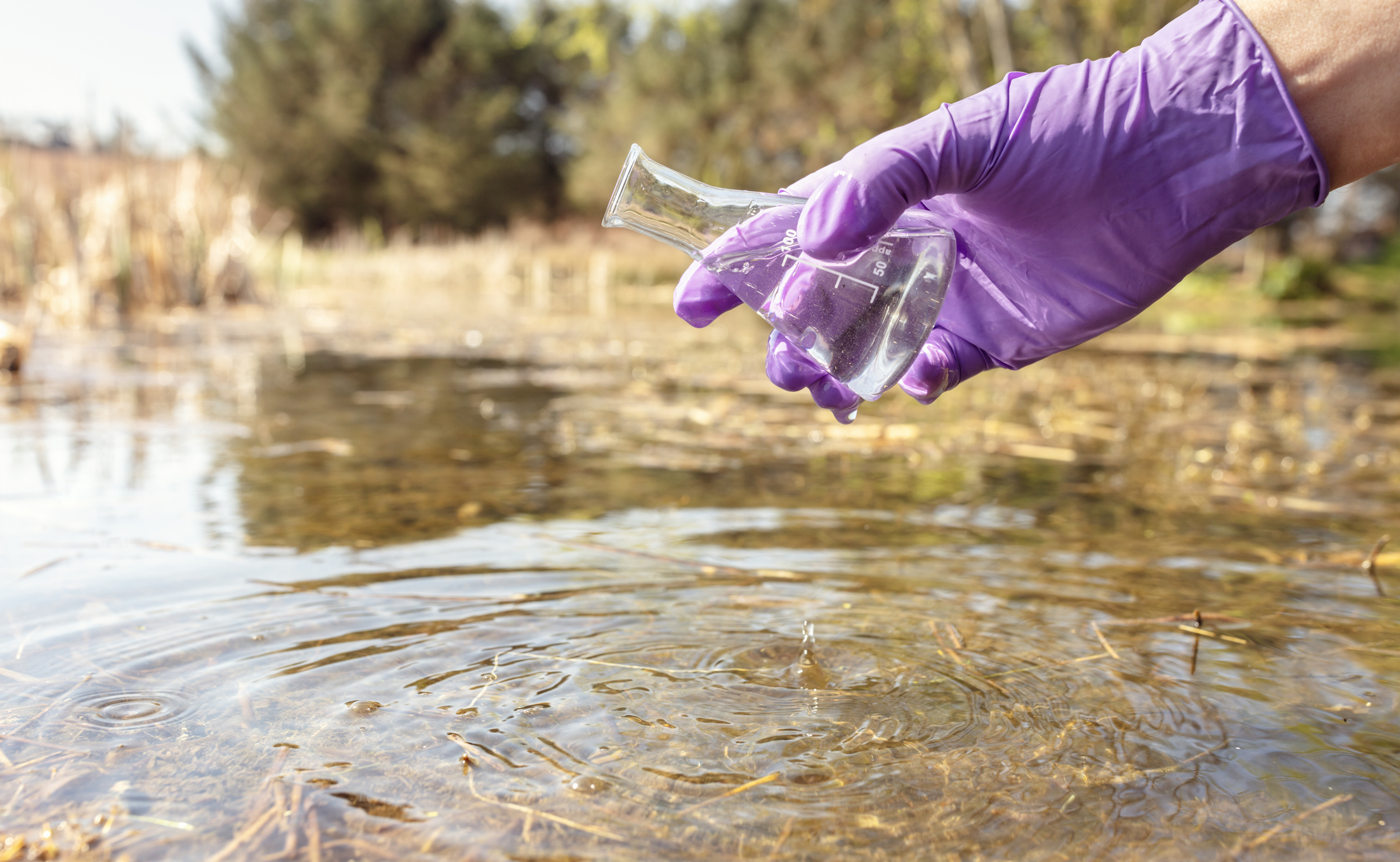Algae bloom in Lake Taihu, one of the largest freshwater lakes in China. (Photo by Heping Xi)

As the atmosphere warms up, so do most freshwater lakes. But this isn’t always the case, and little is known about why. Now, an international team of researchers has some answers that they recently published in the leading journal Nature Communications.
University of Regina limnologist Dr. Peter Leavitt is a co-author on the study. He says the team’s biggest finding was that lakes with more nutrient pollution from farming and wetland drainage – lakes that have layers of green on top of them – are less sensitive to global warming than lakes that are clear, and less polluted.
“Our study shows that greener lakes don’t respond to global warming as much as clear lakes. But this isn’t actually great news,” says Leavitt.
Leavitt says that the green lakes don’t respond readily to warming because they are already damaged by human activities in the surrounding landscape. Too many nutrients from land results in green surface waters that act as a shade, keeping the deep waters cool.
“But greener lakes also lose more oxygen from deep water which results in more fish dying,” says Leavitt. “We need to take measures to protect our lakes, because if they aren’t polluted in the first place, they don’t get as green and won’t lose as much oxygen.”
There is some good news. As lakes warm up, they start to lose water by evaporation and this acts to cool them off. “Just like we sweat to cool off, lakes ‘sweat’ by evaporating water to get rid of excess heat.
“While the good news is that lakes can cool themselves for a period of time by sweating – which protects biodiversity in lakes, recreational fishing, and some aspects of water quality – it’s a short-term measure because those same lakes are losing water. Unfortunately, just like we can become dehydrated if we don’t drink, lakes can’t cool off by evaporation forever, because they will eventually dry out and disappear,” says Leavitt.
Leavitt, who is a Canada Research Chair in Environmental Change and Society and the co-director of the University’s Institute of Environmental Change and Society, says this is a major problem in southern Saskatchewan where twice as much water is lost through evaporation than is received from rain or snow – which, he explains, is why there aren’t many lakes, wetlands, or trees.

The researchers also discovered that despite what we may think, remote, deep lakes, especially those at high elevation and far from human activity, are actually more sensitive to atmospheric warming.
Dr. Jian Zhou is lead author on the study and a research scientist in the Nanjing Institute of Geography and Limnology at the Chinese Academy of Sciences. He says that most people assume that these clear and remote lakes are not badly impacted by climate change, but that’s not the case.

“Clear lakes aren’t already damaged by human activities, so they more readily respond to human-caused atmospheric warming,” says Zhou. “Once lakes become green, they are less affected by warming, but are already damaged by nutrient pollution – basically, they can’t win,” says Zhou.
Zhou says the research team’s work clearly shows that one-size-fits-all responses to global warming and land-use change won’t work.
“Instead, our lake management practices need to consider where lakes are, what they are surrounded by, and how sensitive they might be to unique and interactive effects of climate change and human activities,” says Zhou.
Researchers sampled 345 lakes distributed across twelve countries, primarily in the United States and Europe, for the Controls of thermal response of temperate lakes to atmospheric warming study. Eighteen Canadian lakes were sampled, including six of Saskatchewan’s Qu’Appelle Lakes, which were sampled by the U of R’s Institute of Environmental Change and Society (IECS) as part of a 30-year long Qu’Appelle Long-Term Ecological Research program.

















